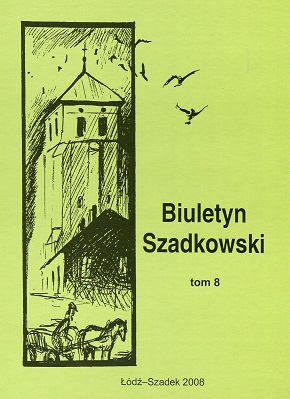Antoni Nowacki – romantyk czy pozytywista? (w 145 rocznicę powstania styczniowego)
Antoni Nowacki – romantic or positivist? (on 145 anniversary of the January Uprising)
Author(s): Dorota StefańskaSubject(s): Essay|Book Review |Scientific Life
Published by: Wydawnictwo Uniwersytetu Łódzkiego
Keywords: Antoni Nowacki
Summary/Abstract: Antoni Nowacki was born in 1842 in Głębokie near Kalisz. In 1862 he finished Agricultural School in Radomsko and began studies in the Main School in Warsaw. It was also the beginning of his conspiratorial activity. During the uprising in 1863 he took part in armed fighting under the command of Edmund Taczanowski. Wounded in a battle with Russians, he was arrested and imprisoned in Warsaw Citadel, to be subsequently sent into exile to a penal colony in Russia on 31 March 1864. He worked in Irkuck and next near the Chinese border. Reprieved by the tsar in 1874 Nowacki returned to Poland and worked as forester in the village of Przewóz, and next, from 1897, in Kromolin near Szadek, in Sieradz district. He undertook secret educational work with children from neighbouring villages, sustaining their hope for regaining independence by Poland. During the First World War he declined cooperation with the Germans. He did not live to see independent Poland, for which he strove all his live – died in Kromolin on 7 May 1915. His grave is at St Ide’s cemetery in Szadek.
Journal: Biuletyn Szadkowski
- Issue Year: 2008
- Issue No: 08
- Page Range: 161-178
- Page Count: 18
- Language: Polish

